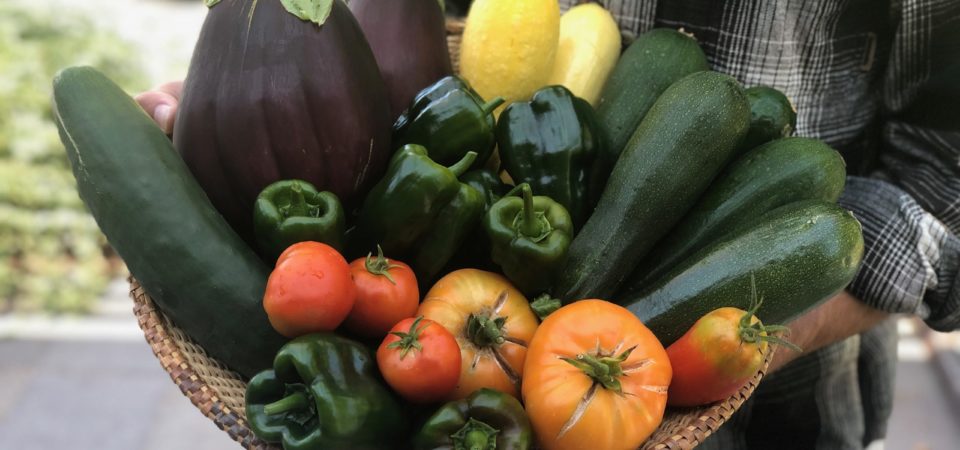It was early evening. I walked across our Virginia property toward the house, a large head of lettuce in my hands. “I picked a salad for dinner tonight,” I said. My mother-in-law stared for a moment and then replied (in French), “I feel like a young girl again seeing my father come back from the garden with the things he had picked for dinner.”
For me, that same feeling, from deep in my past, comes each time I eat a ripe tomato from the garden. I am a small child again with my grandmother, who has sliced a tomato for me, and sprinkled it with salt. I eat the slices, enjoying the juicy, salty tomato flavor. It is no special tomato — just a typical one we would buy at the local grocery store in Indiana, no more or less special than the delicious, but fragile peaches or ripe pears we would sink our teeth into every summer, so juicy they were messy to eat.
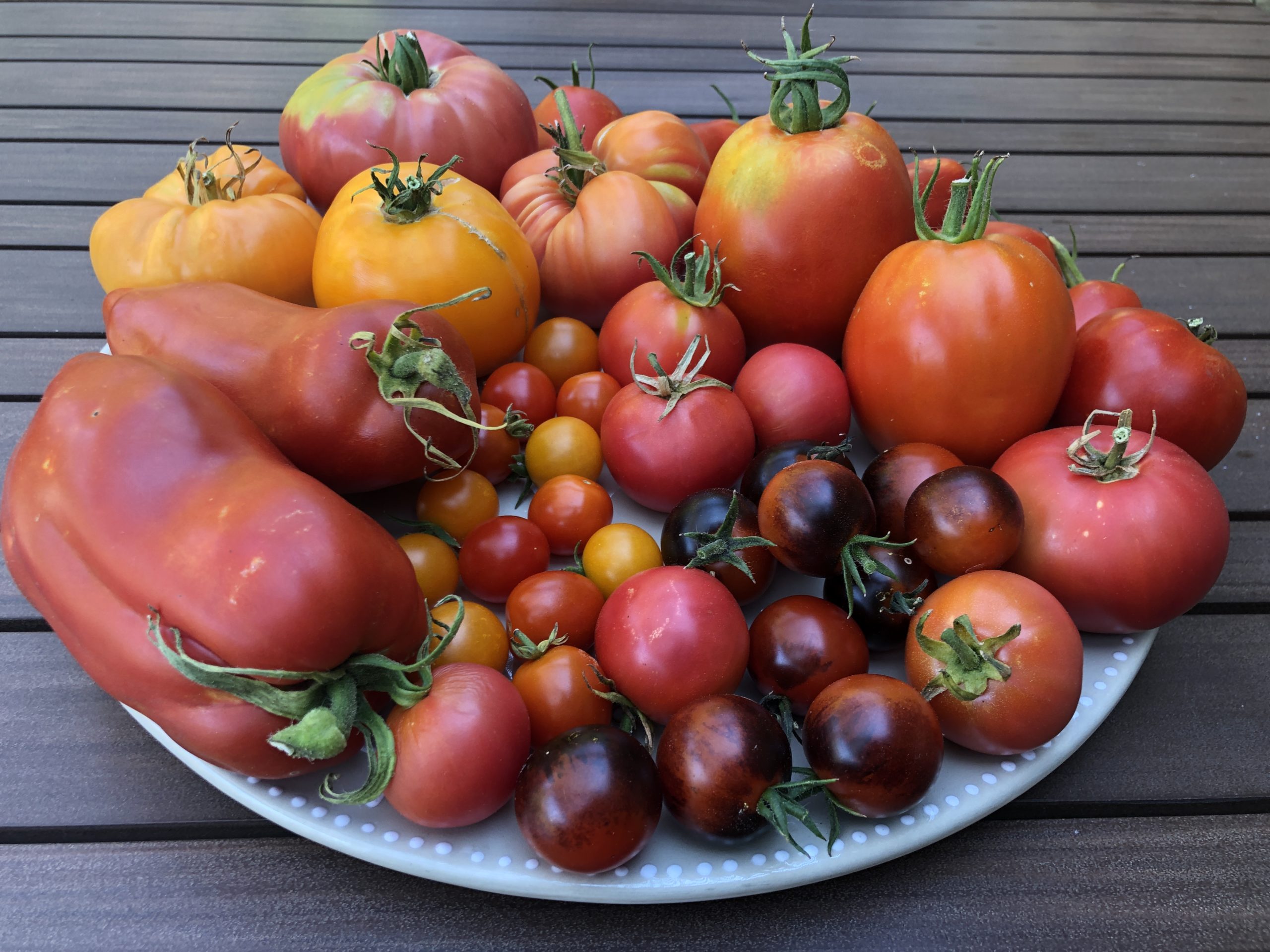
Unfortunately, these memories are difficult to conjure in the modern day food ecosystem, and practically impossible to make for the younger generations. Our quest for more efficient and consistent food production has achieved just that: food efficiency and consistency. I won’t claim that the past was better and that everything was great when I was a child (no MAGA here). But we do have to recognize all that we have given up in the process of achieving food efficiency at scale — community, food quality, societal resilience, self-sufficiency, natural beauty — and understand what they mean for our future sustainability and our quality of life.
In one form or another, I have been gardening for the last 20 years, a little on our apartment balcony in Texas, then to a garden bigger than our small house in Virginia, and now in our present day backyard “microfarm” in the heart of Silicon Valley. But something has changed in me over that time, and has evolved more rapidly in recent years.
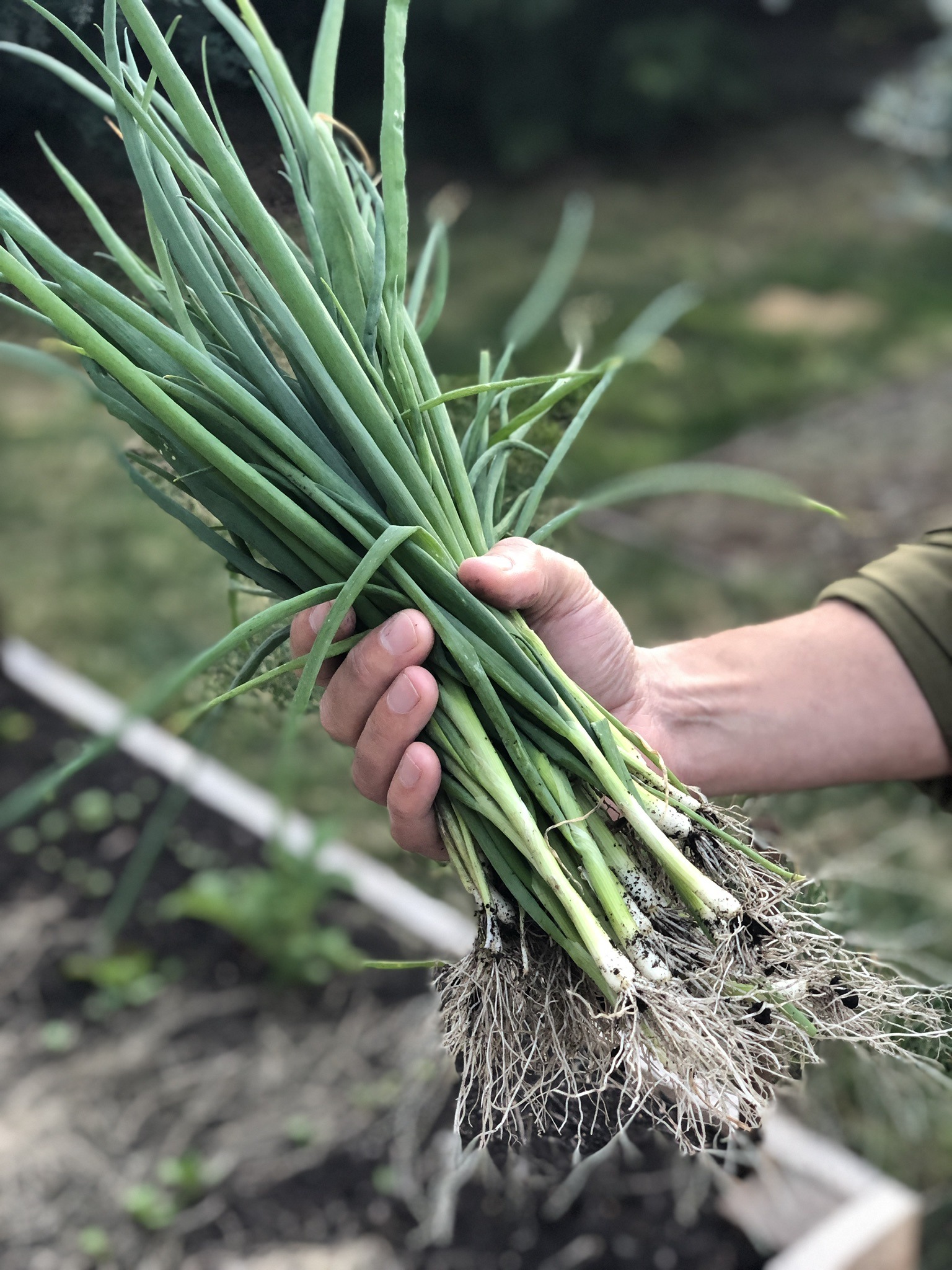
Where gardening was once some extracurricular channel for me to feel a sense of accomplishment and self-sufficiency by growing things on my own (a sort of primal, chest-beating, I-grew-and-brought-home-the-bacon kind of satisfaction), it has evolved into more of an imperative. For me, growing food has become less about “I” and more about “We”. I have clearly seen and experienced a connection between growing things and my quest for a richer, simpler daily life, with more community connections, and more sense of contribution to reducing our global sustainability predicament. This shift in perspective drove me to overcome my aversion to social media and create the @lafermedesforbes Instagram account this year with the goal of inspiring others around me to grow food, to share techniques, and to be part of a larger community of people enjoying the idea of growing food.
I have had a lengthy and rewarding career in hi-tech, and I don’t regret that path, which has been very good to me and my family, but my existence in the hi-tech workforce started to feel rather transient: another project, another team, another long day with meetings from morning to evening, another flight, another year, another payout, people come and go from the workplace and from the community, and no real, lasting friendships and connections ever form. The higher you go on the corporate ladder, the less you can be friends with your employees (for professional, disciplinary, and legal reasons), and despite collaboration, everyone is technically in competition with each other at higher levels, so workplace relationships are friendly, but never really friendships.
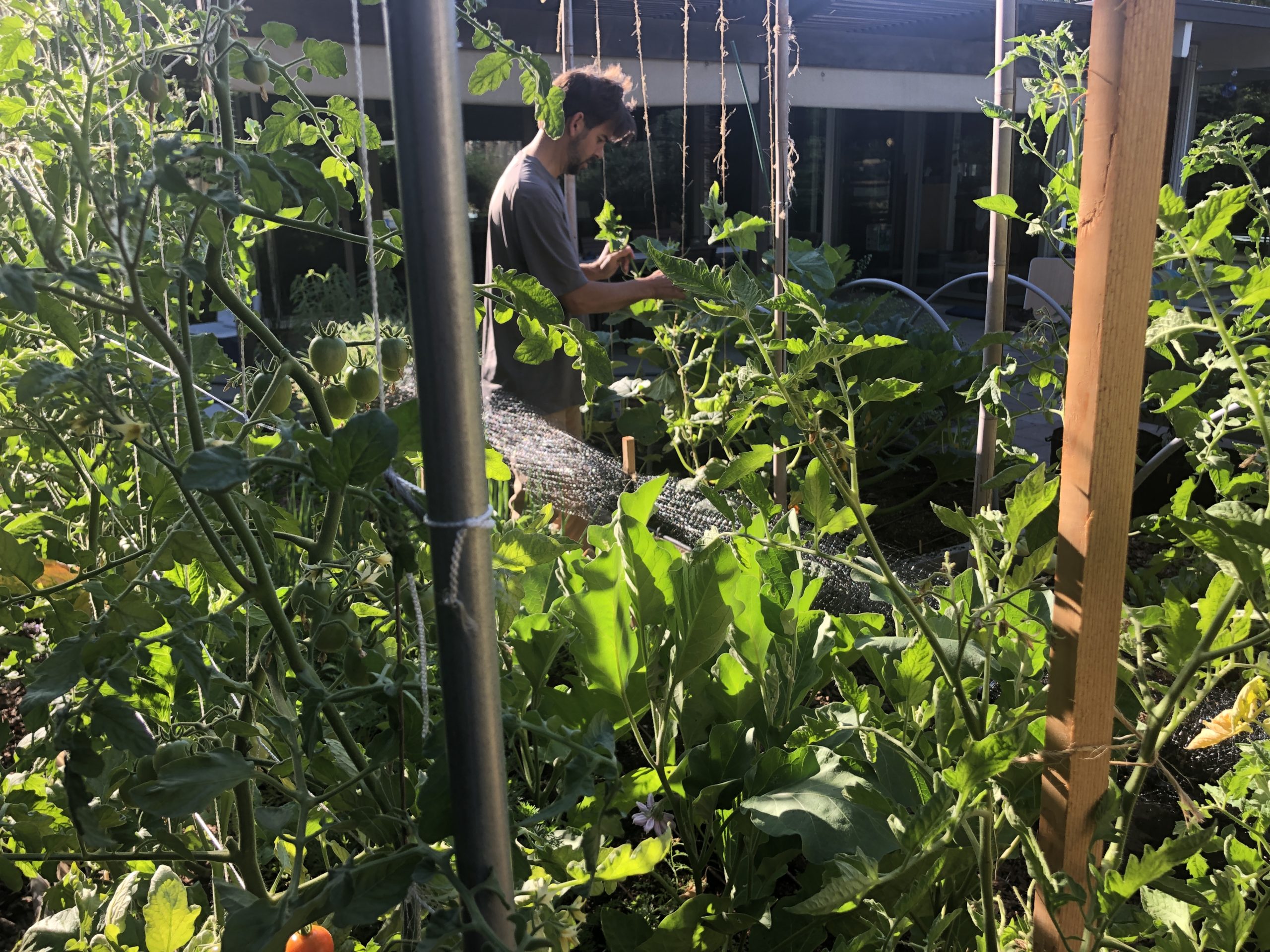
Growing food for others accidentally showed me a path to meaningful, and more durable connections with the people around me. Each year I grow seedlings for my garden, yet this year I decided to grow extra seedlings of the many different, often hard-to-find varieties I was planning to grow in our garden. The idea was to give the extras to friends (less avid gardeners) for them to experience new varieties they would not otherwise find in the stores. However, just at that time, COVID-19 emerged, and the local garden nurseries closed. Suddenly, finding garden seedlings became difficult for gardeners. News of my seedling giveaway began to spread, and I soon found myself in [socially-distanced] contact with many wonderful people in our community. In total, we raised and gave away over 200 seedlings to friends and neighbors in our community who, in turn, rewarded us with homemade jam, bottles of wine, literature they wrote, and other unique tokens of gratitude. I realized that in just two months, I had met and established meaningful connections with more people than I had in the 10 years at my workplace, while also deepening the relationships with people we already knew, but with whom we never had much shared interests.
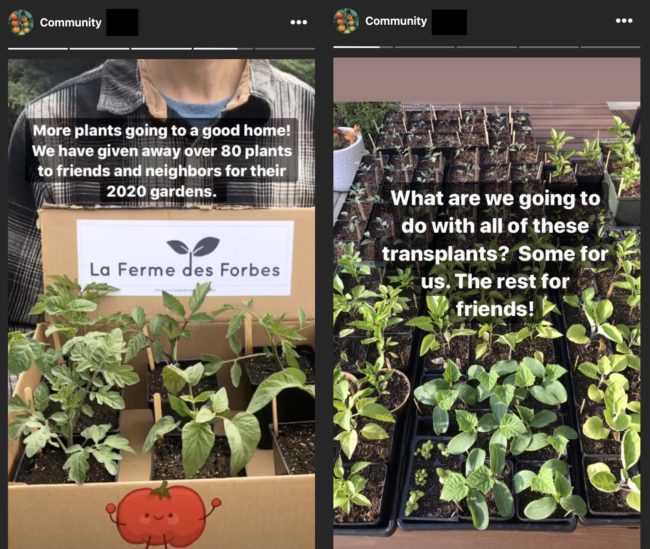
It is obvious that we are faced with an urgency to improve the resilience and sustainability of our society, and transforming our food supply chain is a big part of achieving that outcome. I’m not the person to start the next, major nonprofit dedicated to global sustainability. But it has occurred to me that small farmers — 91% of farms are small farms — and people like me, with a keen interest and some skill in growing things, have a critical role to play in shifting our society to a more sustainable, more resilient and fundamentally more interesting model of how we source and connect with the food we eat.
When COVID-19 emerged, a rapid shift in the food supply chain took place, giving us an exciting glimpse into a better, more sustainable future of food supply. Local farms were suddenly overwhelmed with customer demand for their Community Supported Agriculture (CSA) programs. People were scrambling for reliable sources of food, and local, small farms were more than happy to step up to serve that demand. We talk about jobs that make a difference. Why not be a small, but important, provider of local, high-quality food? This is a great time to join the movement and help transform at least one community.
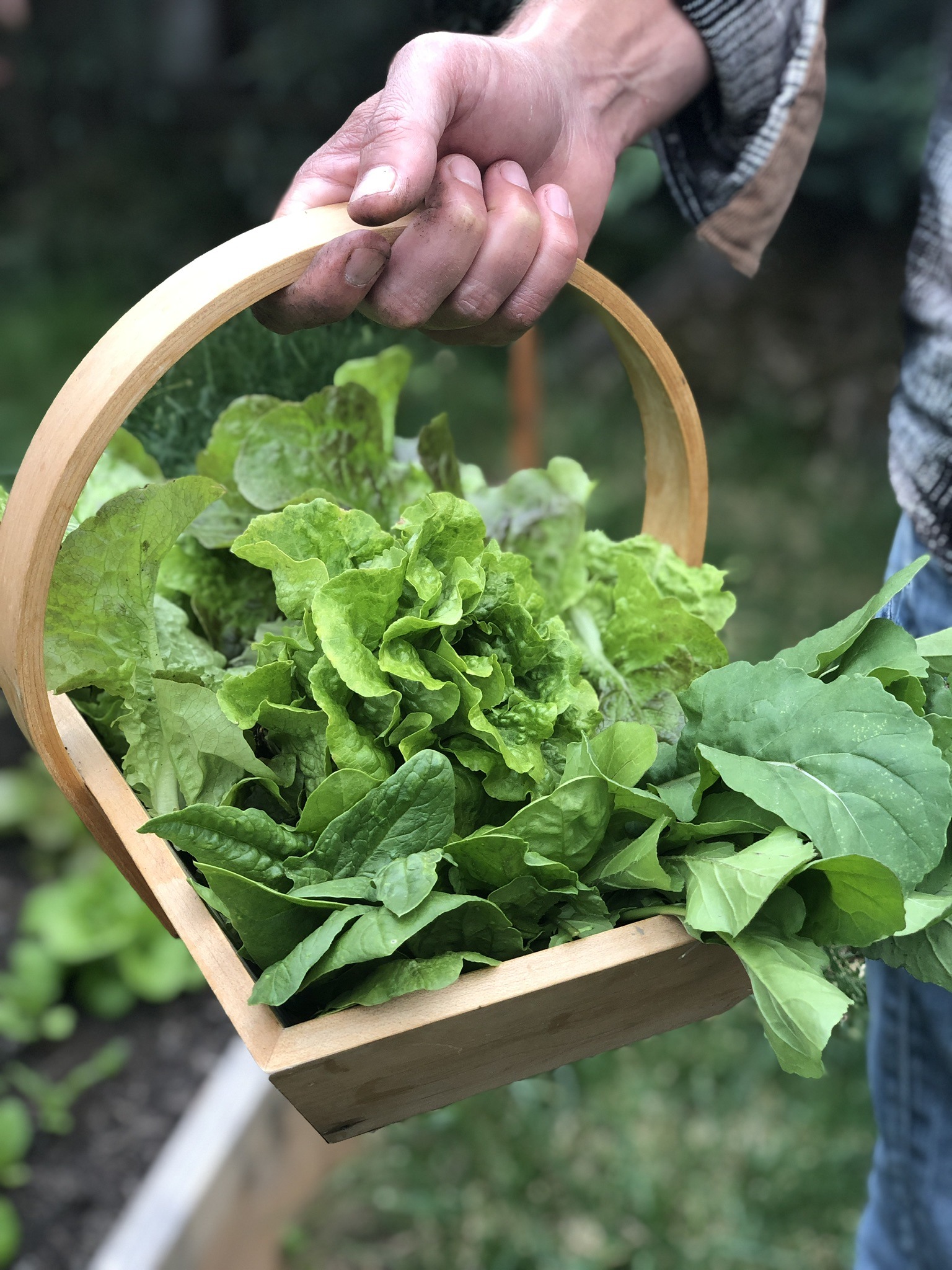
If we are going to live sustainably on this planet, then we all must change our perspectives and habits, and that is what my wife and I are doing. We see a path forward, one in which life is somewhat simpler, focused on the richness and quality of daily life, one in which we contribute to stronger and more sustainable communities, and one by which we develop even more meaningful and durable connections with those around us. This is why we are in the process of moving to a small farm, to join the ranks of many small farmers who are using low-impact, regenerative techniques to feed the local community, and to create a place of beauty, enjoyment, education, employment, and residence within the local community.
The techie in me is not dead — I just built and released the first version of a garden/small farm management application — but I feel the shortness and preciousness of the days and the years. I feel the need to spend that time on the simple pleasures of daily life that have a lower negative impact, and more positive impact, on our global situation. And I feel the need to do something for all of the grandmothers and small children who are desperately in need of delicious tomatoes to slice and enjoy together.
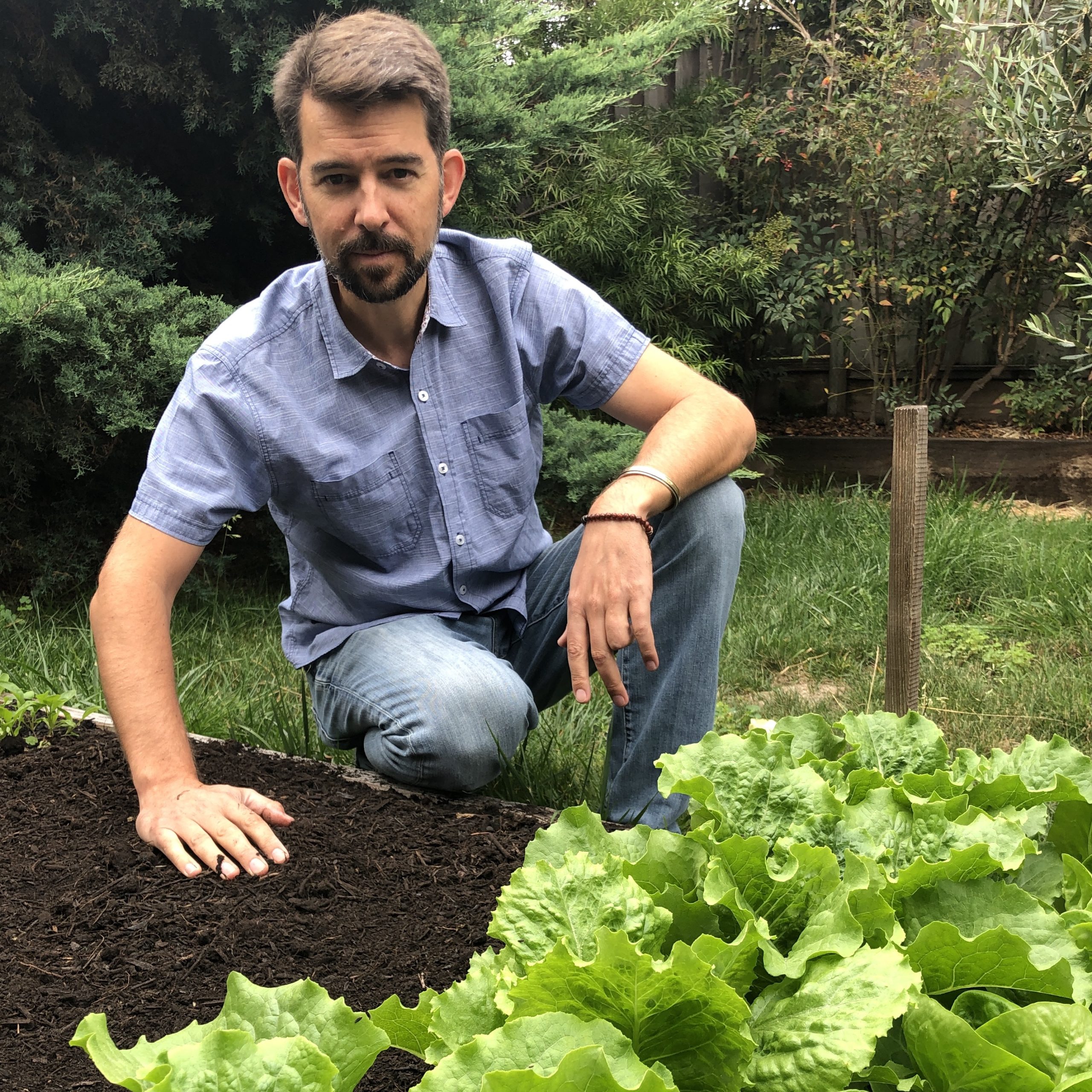
Kyle Forbes currently lives and works in the San Francisco Bay Area of California with his wife and children. He holds a degree in Forestry and Wildlife from Purdue University, a masters degree in Geography from the University of Nebraska, and an MBA from San Diego State University. Born in Indiana, Kyle has lived in places across the United States and abroad and has traveled extensively. Having spent over 20 years developing technology and leading technology teams and organizations within startups and large corporations, he is now in the process of transitioning to small, community-centric, regenerative farming. Follow his current urban garden on Instagram @lafermedesforbes.
The MAHB Blog is a venture of the Millennium Alliance for Humanity and the Biosphere. Questions should be directed to joan@mahbonline.org

